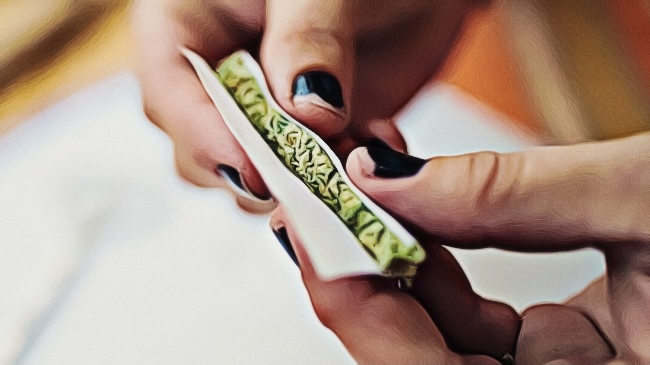Many people can’t help but think that it’s always greener on the other side. But when it comes to the world of substance abuse, marijuana is sweeping the world with its promise of taking your mind to a cerebral cloud nine.
Also known as grass, ganja, pot, cannabis, weed, or Mary Jane, this growing love affair with this herb since the healthcare industry recognizes the plant’s health-boosting benefits. While responsible use of CBD-rich products offers widespread relief, how can you tell when use transforms into abuse?
If Marijuana Is Legal in Various States, Why Is It Dangerous?
Marijuana has a long-touted history filled with upheavals up to the point when many states in different countries fully legalized the plant due to its apparent medicinal potential. However, the problem is that marijuana still poses a dangerous risk of developing an addiction.
Younger generations that are 18-years-old or below also have the highest likelihood of developing marijuana use disorder, which defines a compelling need to abuse the euphoric effects despite clearly seeing how it disrupts their responsibilities and routine.
The fact that there is a great rift between marijuana’s effectiveness as a herbal remedy and addictive tendencies creates fierce debates in the community, so the conflicting finds are why cannabis remains a Schedule I Drug, according to the Drug Enforcement Administration (DEA).
Different Ways to Tame Your Addiction to Weed
The good news is that tapering your addiction to weed will not be as grueling as highly-addictive drugs like opioids, heroin, and other similar substances, but it’s not easy to let go of one’s craving for the green high.
People who typically smoke weed with friends only may fare better when quitting cold turkey, though it also means you have to be with a positive support network who can help build your resistance against temptations.
For people who are hooked with marijuana through and through, joining an addiction treatment program may be the better option if you want to successfully get rid of your marijuana dependence.

How Long Does Marijuana Stay in Your System?
Consuming even small amounts of cannabis can stay in your system between one to thirty days, but the time can stretch beyond 90 days to several months for smokers who abuse the drug daily. When you conduct a drug test for marijuana, the length varies depending on the following:
- Saliva Test – A person who smokes marijuana will come up positive if they proceed with the saliva test between 34 to 48 hours after their last use;
- Urine Test – People who only smoke once in a blue moon can expect marijuana to show in their urine for one to three days. Moderate users, on the other hand, can test positive for 7 to 21 days, while those dependent on marijuana can have it in their system for months;
- Hair Test – Marijuana can be detected in your hair and test positive within 90 days of your last use;
- Blood Test – Oddly enough, taking a blood test would only be positive for up to 36 hours from your last use.
Tell-Tale Signs of Marijuana Withdrawal
Potheads develop marijuana dependence since smoking frequently can easily build one’s tolerance to THC. Additionally, it can take some time to flush the cannabinoids from your system, so withdrawal symptoms can drop down like a bucket to your head whenever you stop smoking.
Some red flags that indicate you’re experiencing withdrawal from marijuana abuse include the following:
- Irritability;
- Anxiety;
- Depression;
- Restlessness;
- Physical manifestations like sweating, tremors, or chills;
- Decreased appetite;
While the withdrawal signs are not as time-sensitive nor life-threatening, these negative changes in a person’s physical, emotional, and mental state can derail anyone from their responsibilities, relationships, or routine.
Exploring the Adverse Effects of Marijuana Addiction
When it comes to pinning down the culprit behind marijuana’s addicting high, it mostly points to tetrahydrocannabinol (THC). It’s the primary psychoactive compound found in cannabis plants, which interacts with the body’s endocannabinoid system to produce euphoric sensations such as mind flight, couchlock, and more.
Its other famous counterpart, cannabidiol (CBD) is well-accepted for its non-psychotropic and anti-inflammatory properties, so medicinal users who take pure CBD concentrates don’t have to worry about the risks of getting high since legal production requires CBD products to have 0.3 percent THC content, according to the U.S. Department of Agriculture (USDA).
For experienced recreational smokers who love to smoke pot for its hallucinogenic and mood-altering effects, the chances of developing a dependence are significantly higher, resulting in the following adverse side effects:
Physical Manifestation of Marijuana Addiction
- Bloodshot eyes;
- Cottonmouth;
- Unnatural increase in appetite;
- Lethargy;
- Couch lock;
- Impaired balance;
- Anxiety or paranoia;
- Poor memory;
- Slow reaction time;
Mental Manifestation of Marijuana Addiction
- Inability to focus;
- Delayed reaction;
- Misguided judgment;
- Lack of ability to track time;
- Anxiety;
- Paranoia;
- Mood swings;
- Distorted perceptions;
- Poor problem-solving skills;
- Compromised learning abilities;
Coming Down From Your High: Taking the First Steps to Quit Smoking Marijuana
It’s tempting to explore the greener side of the fence as marijuana grows in popularity, but understanding the negative ramifications it can deal with your physical and mental health is crucial since the drug’s legalization does not guarantee it has no long-term impact.
Addiction can lower the mind’s capacity to think critically since it disrupts the brain’s development, plus the fact that getting high impairs your judgment and motor coordination can all create a recipe for disaster.
If you find yourself struggling to let go of your marijuana use, seeking help from your loved ones with the addition of professional addiction treatments should help you come down from your high and see the dangers it poses to your reality.
Sources:
https://www.drugabuse.gov/publications/research-reports/marijuana/marijuana-addictive




